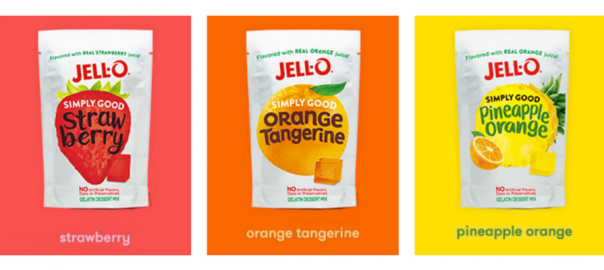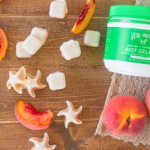As consumers start to pay attention to sugar consumption and more organizations and communities begin to tax excess sugar, industry giants are trying to fight back. The most recent effort is Coca-Cola's funding of a study that claims lack of exercise and excessive screen time is to blame for the obesity crisis. The study further states ‘more work need[s] to be done' when looking at the influence of diet on obesity.
The sugar misdirection
While exercise is definitely important and needs to be part of a healthy life, this study is very deceptive. It seeks to shift attention away from diet and from what's in our food (added sugars are astronomically high in our diet at this point). It redirects the issue in a way that absolutely infuriates me.
Corporate interest is in making money. They do that by spending tens of millions of dollars to figure out how to make a product that is addictive and nearly irresistible. Then they spend even more money to figure out the psychology behind how you buy and to entice you to purchase their product. The outrageous part is when they then claim they have no impact on your health; it's completely up to you to make the choice not to consume their product. When they take it one step further by funding studies that support the sale of their products and influence reported results that distance them from any responsibility for the impact on health? That's unconscionable.
While I agree it is a personal responsibility to watch what you eat, I maintain that it's very overwhelming for the consumer who is surrounded by this sort of corporate deception and manipulation. In the case of this most recent study, leaked emails reveal that, despite stated claims to the contrary, Coca-Cola contributed funding to the study and had a big hand in helping to design it.
It's happened before
This is not the first time corporate funding has co-opted research. Last year Coca-Cola and Pepsi were found to have funded a controversial study that claimed diet drinks were better than water for weight loss. But it doesn't stop there. Coca-Cola clearly and openly funds many major health organizations such as The Academy of Nutrition and Dietetics, The American Cancer Society, and The American Academy of Pediatrics. When they fund the research these organizations do there is bound to be some sort of a bias in their favor. If, as it appears in this recent case, they have a hand in designing the study as well as funding it, that makes the results even more questionable.
There is a war on. When it comes to your health and the information you need to make informed, educated decisions you can't rely on headlines. The news media is looking for soundbytes. They're relying on our inattentive, 3-second-goldfish-mind, to just run news blurbs past us and then move on to the next thing.
We have to go deeper than the headline news ticker. You need to know who funded the study, who designed it, was there any potential for influence for corporate gain, and is it solid science. This is not the first time this has happened in the war on sugar. It's not even the first time that there's been an all-out assault on convincing consumers that an ingredient which is bad for them is actually not so bad. I'd like to take you on a small journey to the past; looking at a different ingredient war.
What's wrong with HFCS
At this point we know that High Fructose Corn Syrup (HFCS) is bad for us. It's damaging to our liver, contributes to obesity, diabetes, and heart disease.
Invented in the 1970's it was approved for use in food by the US Food and Drug Administration (FDA) in 1983. It was seen as a safe sweetener and began to find it's way into a wide variety of foodstuffs, juices, desserts, baked goods, and more. HFCS as an ingredient sometimes appeared in on the front of the label.
Over the decades evidence began to show up revealing that HFCS was not as benign as we had been lead to believe. As more consumers began to stop consuming HFCS the Corn Refiners Association began to push back. They started an ad campaign, “What's wrong with High Fructose Corn Syrup.” You know those commercials. Someone offers another person a popsicle and the person it's being offered to says, “No thank you, that has high fructose corn syrup in it.” The person offering it says, “So? What's wrong with that?” The other person then stands there looking stupid as if they have nothing to say. Unfortunately we now know that there is a lot wrong with HFCS and it should not be part of our diet. But they put it in everything. And even with consumer backlash HFCS is still being used. It's in sweet things like jams and applesauce. It's in savory things like condiments. It even appears in some commercial vitamins.
When the ad campaign was not as effective as they hoped the Corn Refiners Association pushed to have the name changed to Corn Sugar. Their thinking was that this would seem more benign that HFCS and be more acceptable to consumers. As I wrote in The Pantry Principle, that effort failed and they were forced to keep the name High Fructose Corn Syrup. HFCS is still the occasional subject of articles that claim it's not any worse for you than sugar. But now the ads have all but disappeared. The front of package labels say No HFCS in bold letters.
Fighting back
It t ook over 40 years to get to where we are now with HFCS. There's no telling how long it will take with sugar.
ook over 40 years to get to where we are now with HFCS. There's no telling how long it will take with sugar.
I promise you it's a war; one that the manufacturers will defend as vigorously and as long as they can. Sugar taxes and clear labeling cuts into their profit margins. That's enough to make them misdirect and engage in morally questionable practices like funding misleading study results.
Don't be fooled by the headlines. You can make a change for yourself and choose health. Read the labels. Be aware of how much sugar you're consuming and where that sugar comes from. The more you learn about the different types of sugar and it's effect on the body the more you will be able to look past the manufacturer manipulation and misdirection. And the more you will be able to eat well to be well.
Related Links
Channel 4 dispatches: Secrets of Coca-Cola
Coca-Cola Funds Scientists Who Shift Blame for Obesity Away From Bad Diets
Coca-Cola ‘spends millions on research to prove that fizzy drinks don't make you fat'
Consumption of high fructose corn syrup in beverages may play a role in obesity
The role of high fructose corn syrup in metabolic syndrome and hypertension
High-fructose corn syrup-55 consumption alters hepatic lipid metabolism and promotes triglyceride accumulation





